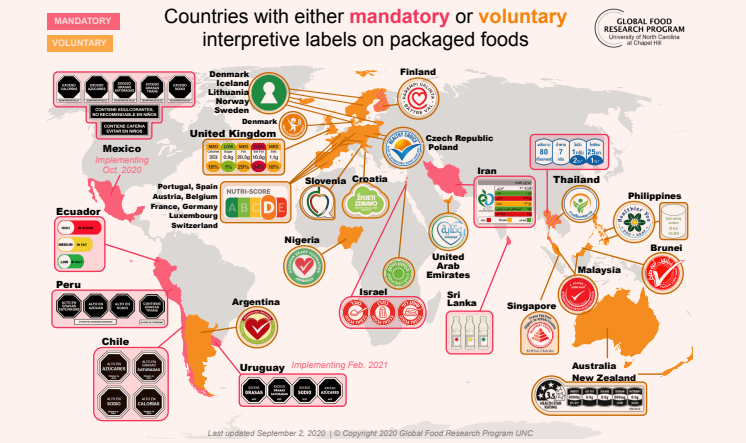Inside BENEO’s new pulse plant: pioneering sustainable protein from faba beans
New Guide Offers Roadmap for Countries to Adopt Front-of-Package Labels
Recent research revealed that people with obesity have 48% higher rates of death from COVID-19, and with more than 2 billion people overweight or obese globally, the push to combat obesity and improve nutrition has become more urgent than ever.
Evidence has shown that a key intervention is empowering consumers with clear front-of-package labels that identify the unhealthiest foods. Global health organization Vital Strategies and global partners released the Guide to Introducing Effective Front-of-Package Nutrient Labels to assist countries in taking up this cost-effective, high-impact strategy to combat obesity.
“Smart labelling regulations work. Most shoppers spend fewer then 10 seconds selecting each food and beverage item—they need quick and easy ways to select the healthiest foods,” said Dr. Nandita Murukutla, Vice President of Global Policy and Research at Vital Strategies. “Our new guidebook will help countries develop smart strategies to use front-of-package space for visible and clearly understood nutrient warning labels that help consumers avoid unhealthy purchases and, ultimately, lead to healthier populations.”
The guidebook was produced by Vital Strategies and the University of North Carolina’s Global Food Research Program with support from Bloomberg Philanthropies, and presented at a virtual event alongside the United Nations General Assembly.
The guidebook draws on success stories from countries such as Chile and Mexico and outlines how to develop effective front-of-package labels, including sharing the scientific basis for labels, how to adapt existing labels from other settings for local context, testing label designs, and the need to build public support for the effort.
“The obesity epidemic places an unsustainable burden on health systems, especially in low- and middle-income countries—and COVID-19 has brought new urgency to the issue,” said Dr. Neena Prasad, Director, Food Policy Program at Bloomberg Philanthropies. “It’s imperative that we continue to promote policies and strategies that reduce consumer demand for unhealthy foods and make healthier choices easier for everyone.”
Thirty-six countries currently require voluntary or mandatory interpretive labels on packaged food.

